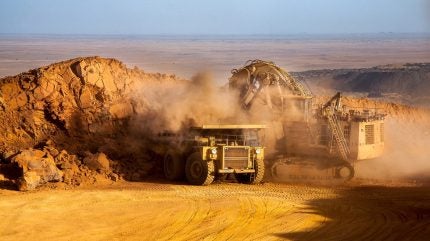
The US Supreme Court has upheld a land swap deal that is crucial to the development of one of the world’s largest copper mines in Arizona.
This decision comes after the court declined to hear an appeal from Apache Stronghold, a group advocating for the religious rights of Arizona’s San Carlos Apache tribe, according to a Reuters report.

Discover B2B Marketing That Performs
Combine business intelligence and editorial excellence to reach engaged professionals across 36 leading media platforms.
The land in question has been used for sacred Apache rituals, and the group’s appeal was based on the argument that the project would violate the US Constitution’s First Amendment and the Religious Freedom Restoration Act.
Despite the setback, Apache Stronghold and its legal team at the Becket Fund for Religious Liberty have vowed to continue their fight against the project.
The proposed Resolution Copper project is a joint venture (JV) between mining giants Rio Tinto (55%) and BHP (45%), with Rio Tinto being the operator.
The project has already seen an investment of more than $2bn without any copper production to date.

US Tariffs are shifting - will you react or anticipate?
Don’t let policy changes catch you off guard. Stay proactive with real-time data and expert analysis.
By GlobalDataThe project has faced multiple legal challenges including from the San Carlos Apache tribe and the Centre for Biological Diversity on environmental grounds.
The US Forest Service has indicated it will republish an environmental report within 60 days, which is necessary for the land swap to proceed.
The land swap, which would allow the mine to access more than 18.1 million tonnes (mt) of copper reserves, was initially approved as part of a defence spending bill signed in 2014.
In March, the US 9th Circuit Court of Appeals upheld an earlier decision, allowing the federal government to transfer land in Arizona to mining giants Rio Tinto and BHP for the Resolution Copper project, Reuters reported.
This ruling supports a 2014 Congressional decision and has significant implications for the mining sector and indigenous communities.





